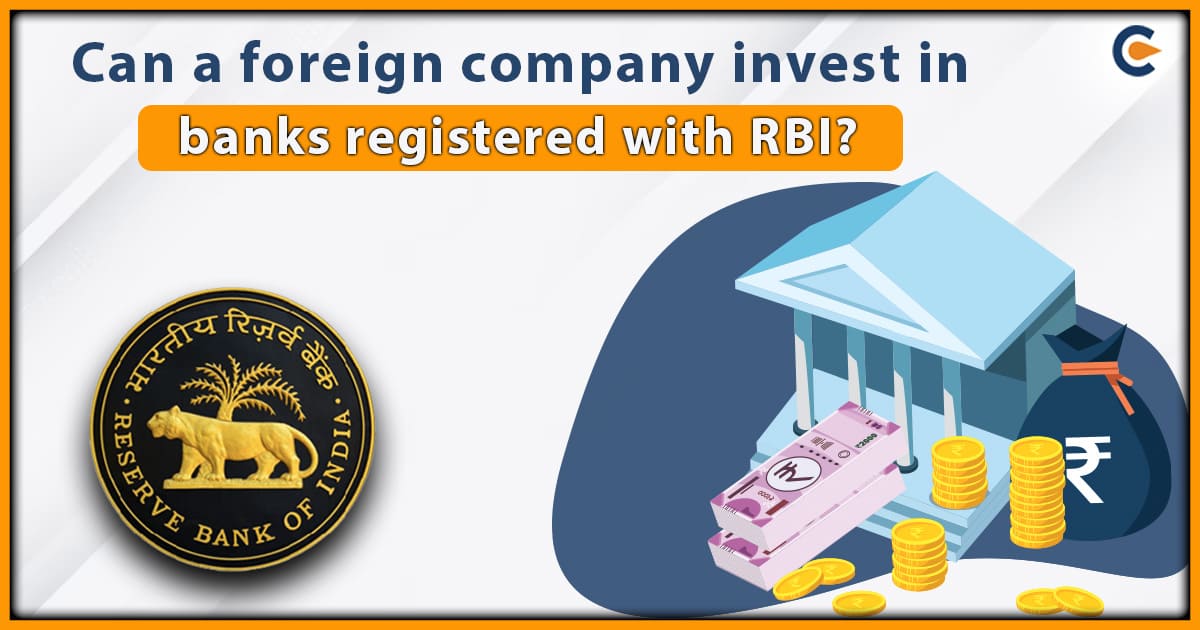Over the past ten years, India has significantly improved its ability to achieve economic development and reduce poverty. The most significant development occurred in 1991 when Indian Government has eliminated restrictions and opened its doors to global business. Since it helps to create a more competitive business environment and fosters enterprise development, human capital formation, and international trade integration, foreign direct investment (FDI) has become a significant source of economic growth and employment creation for developing countries like India.
The author of this article has made an effort to shed light on the FDI policies of the Indian Government. The article outlines the alternatives and associated government regulations for foreign entities looking to invest in India. It also discusses the rules governing foreign direct investment, along with its benefits and cons.
What is an FDI?
Foreign direct investment, often known as FDI, is “Investment made to acquire lasting interest in enterprises operating outside the economy of the investor.” A parent company and a foreign affiliate involved in FDI combined make up a multinational corporation (MNC). The investment must provide the parent company authority over its overseas subsidiary for it to be considered FDI. Owning 10% or more of the ordinary shares or voting power of an incorporated corporation, or its equivalent for an unincorporated organisation, is what the UN defines as controlling a company; lesser ownership shares are referred to as portfolio investments.
The Indian federal Government increased the cap on foreign direct investment in Indian private sector banks to 49 per cent, opening up the banking sector to outside investors. However, the cap on FDI in the nation’s public sector banks is still set at 20 per cent. Foreign banks that have their branches in India are also permitted to purchase shares through “automatic routes” up to a maximum of 49 per cent. It should be underlined that additional shares would not be offered to foreign investors via the “automatic route” if they already have a financial or technical partnership in the banking or related sector. Nevertheless, the Reserve Bank of India (RBI), the nation’s central banking body, would need to provide some legislative clearances.
How does it even work?
For instance, to further its research and development, a US-based technology business, XYZ INC, invests in and buys a controlling ownership in an Indian company, ABC Pvt. Ltd. Market diversity, local knowledge, cheaper labour, tax breaks, and other advantages are a few that tempt international investors to participate in FDIs.
Along with foreign investors, Foreign Direct Investment (FDI) is a significant contributor to economic expansion and a key source of non-debt financing for the nation’s economic growth.
What are the different methods of investment under FDI?
The following is a list of the many methods that a foreign investor can invest in India under the foreign direct investment programme:-
- Association Memorandum (MoA) Subscription
- Combination, De-merger, or Merger
- Priority allocation, private placement, or private agreement
- purchase of shares from Indian citizens or businesses
- Rights and Bonus Problem
- convertible notes conversion
- Exchange of financial instruments
Sectors where FDI is not allowed in India
The following is the list of industries that are off-limit for a foreign investor to invest under the foreign direct investment programme through both the government route and the automatic route:-
- Lottery industry, encompassing online lotteries, government and commercial lotteries, etc.
- Casinos and other forms of gambling
- Chit money
- Nidhi Corporation
- Transferable Development Rights (TDRs) trading
- Real estate investing or building farm houses
- Manufacturing of cigarettes, cigars, cheroots, and other tobacco products or tobacco alternatives
- Activities or industries that are off-limits to private sector investment include, for example, (I) nuclear energy and (II) railway operations (apart from those listed as permissible in entry 18 of Annex B).
Note: Foreign technological partnership in any form, including licencing for franchises, trademarks, brand names, and management contracts, is illegal for operations involving lotteries, gambling, and betting.
Two ways of investment under Indian Banking Sector?
Two routes govern Foreign Direct Investment (FDI) entrance by non-residents into India: the automatic and approved routes. The automated approach is intended for less constrained investment levels and industries. The approval method, on the other hand, involves government organisations that control and monitor foreign investment while authorising it.
Following is an explanation of the two methods mentioned above for your better understanding:-
- An entrance method for FDI that does not require previous Reserve Bank or government permission for investments made by residents outside of India is known as the automatic route.
- The route taken by the government
A method of FDI entrance whereby investments made by Indian citizens who reside outside of India must first receive government clearance. The requirements outlined by the Government in the permission form must be met by the foreign investment obtained through this channel. The Foreign Investment Facilitation Portal (FIFP), a new online site to streamline FDI approvals for investors, allows for the submission of applications. The Ministry of Commerce and Industry and the Department of Industrial Policy and Promotion run this portal.
The Foreign Investment Promotion Board (FIPB), the Cabinet Committee on Economic Affairs, or the Cabinet Committee on Securities are responsible for reviewing proposals for foreign investment under the approval procedure specified in the FDI policy. In some circumstances, the aforementioned authorising agencies are also receiving assistance from the Department of Economic Affairs (DEA) or the Department of Industrial Policy and Promotion. The FIPB evaluates those investments for approval up to INR 5000 crores. CCEA will provide permission for amounts more than this.
The sector and kind of investment defined in the unified policy on FDI determines which organisation or agency must approve a particular FDI proposal. For instance, under the new FDI policy for the defence industry, FDI that is greater than 49 per cent and entails an investment of more than INR 2000 crores must be authorised by the Cabinet Committee on Securities.
Investment permits in the banking sector
The RBI has outlined the following investment permissions in the banking industry in this specific section:
- In PSU banks, 20 per cent of FDI is permitted through the government-approval method.
- If there is no change in control or management, the automated process has a higher FDI maximum for private banks of 74 per cent.
- Any one company may not hold a bank’s total deployed capital above ten (10) per cent.
What are statuary limits?
The author has covered all of the following topics about the FDI statutory limit imposed by the RBI under this section:-
- In Indian private sector banks, “automatic route” FDI up to 49% is allowed. This includes initial public offerings (IPOs), private placements, ADR/GDRs, and the purchase of shares from current owners.
- The intuitive approach does not allow transferring existing shares in a banking firm from residents to non-residents. This group of investors needs FIPB permission before receiving “in principle” approval from the Reserve Bank of India’s (RBI) Exchange Control Department.
- The Securities Exchange Board of India (SEBI) guidelines for listed shares and the former CCI guidelines for unlisted shares serve as the foundation for how the Reserve Bank of India (RBI) determines the “fair price” for the transfer of existing shares. The resident seller can receive cash after receiving “in principle” approval and then submit an application to ECD, RBI, to get final authorisation for the transfer of shares.
- Foreign banks with branch locations in India are eligible for FDI in private sector banks with RBI permission, subject to a 49% overall ceiling.
- Foreign investors with a financial or technical partnership in the same or a related sector are not eligible for the automatic route for the issue of new shares. For those who fit into this group, FDI in the Indian banking industry must first receive clearance from the Foreign Investment Promotion Board (FIPB).
- The maximum foreign investment in an insurance firm has been set at 26% under the Insurance Act. The RBI should receive applications for foreign participation in banks with subsidiaries or joint ventures in the insurance industry. In conjunction with the Insurance Regulatory and Development Authority (IRDA), RBI will evaluate such proposals.
- The statutory cap on FDI and investment portfolios in nationalised banks is 20%.
- Such investments in the State Bank of India and its member banks would be subject to a 20 per cent cap.
What are the voting rights of the foreign investors?
| S. No. | Sector | Voting Rights |
| 1 | Private Sector Banks | Not more than 10 per cent of the total voting rights of all the shareholders. |
| 2 | Nationalized Banks | Not more than 1 per cent of the total voting rights of all the shareholders of the nationalised bank. |
| 3 | State Bank of India | Not more than 10 per cent of the issued capital. This does not apply to the Reserve Bank of India (RBI) as a shareholder. However, in consultation with RBI, the Government can raise the ceiling for foreign investors. |
| 4 | SBI Associates | Not more than 1 per cent. This ceiling will not be applied to the State Bank of India. Any person holding more than 200 shares will not be registered as a shareholder. |
Approval from RBI
Transfers of shares representing 5 per cent or more of a private sector bank’s paid-up capital require RBI acknowledgement in advance.
The private sector bank must submit an application to RBI in the approved form for FDI of at least 5% of the paid-up capital.
According to the Foreign Exchange Management Act[1], 1999 or FEMA, every new issue of bank shares, whether done automatically or with the special FIPB clearance, does not need further approval from the RBI’s Exchange Control Department (ECD) from an exchange control perspective.
The sole reporting requirements for the Indian banking corporation to the ECD of the RBI are as follows:-
- The Indian company must submit a report within thirty (30) days of the date it received the amount of consideration, including the name and address of any foreign investors, the date the funds were received, their equivalent in rupees, the name of the bank through which the funds were received, and any information regarding government approval.
- Within thirty (30) days after the shares were issued, Indian banking companies are obliged to submit a report in form FC-GPR (Annexure II) together with a certificate from the company secretary of the relevant business attesting to compliance with specific legislation.
What are the steps for FDI under Government route?
If you are planning to make a Foreign Direct Investment underrate a Government route, then you must look at the following steps carefully:-
- A proposal for an application must be submitted to the Foreign Investment Facilitation Portal. The application must follow the rules and procedures outlined in the FDI policy, and SOP established for processing FDI proposals. Additionally, the candidate must attach the proposal together with all necessary documentation.
- Within two (20) days, the Department for Promotion of Industry and Internal Trade (DPIIT) must identify the relevant ministry or department and electronically transfer the proposal. The proposal will also be distributed online to the RBI for feedback from the standpoint of FEMA.
- The Ministry of Home Affairs (MHA) must receive proposals needing security clearance. Additionally, the Ministry of External Affairs will receive all of the ideas for review and discussion. All comments will be sent directly to the relevant Government or department.
- With the consent of the Secretary for the relevant Administrative Department or Ministry, specific questions or proposals that call for clarification from the standpoint of FDI policy shall be addressed to the DPIIT for the explanation. The explanation is based on need and is not standard operating practice. Within two weeks, the DPIIT must provide its opinions on particular FDI policy problems.
- Within four (4) weeks of receiving the online application, the involved Ministries and Departments must provide their views. It will be presumed that they will only have comments to make on the relevant proposal if the remarks are submitted within the allotted period. Additionally, if the MHA’s approval is needed, it must be given within six (6) weeks. If the MHA is unable to deliver the clearance within the allotted period, it must inform the ministry or the department of the time limit in which it will be able to do so.
- The appropriate authorities will examine the application within a week and may ask the applicant for further explanation or supporting documentation. To prevent any kind of delay, these questions must be communicated to the applicant online or by email. If the applicant doesn’t respond to the questions and offers the necessary explanations within a week, they will be asked to do so during the next seven days. The applicant will get one last reminder to submit the required information within seven (7) days after receiving the reminder, failing which the application will be closed owing to the applicant’s failure to supply the required information or documentation. The applicant’s time spent responding to the Competent Authority’s questions will not count towards the allotted time for processing the application.
- The proposal must be submitted to the CCEA (Cabinet Committee of Economic Affairs) for review if it contains FDI that exceeds INR 5000 crores. Within a week of receiving CCEA’s answer, the decision must be communicated.
- Once the proposal is complete in every way, the Competent Authority must process it and notify the applicant of their decision within the next four (4) weeks. The Competent Authority shall send an online approval or refusal letter to the applicant, DPIIT, and pertinent Ministries and Departments.
Conclusion
We can infer from the foregoing explanation that India’s banking system is distinct from all others in the Asian region due to the country’s unique geographical, geographical, social, and economic elements. India is a large country with a diverse population of 1350 million. Between investing and saving, foreign direct investment (FDI) acts as a link. FDI is being carefully developed in India’s economy as a developmental instrument that may aid in the achievement of economic independence in a number of industries. Numerous incentives and exemptions were put in place when India’s new industrial policy was unveiled in 1991 to promote the inflow of foreign capital into the nation. Between investing and saving, foreign direct investment (FDI) acts as a link.
Read our Article: Growth And Quality Of FDI: Are All FDI Equal?











